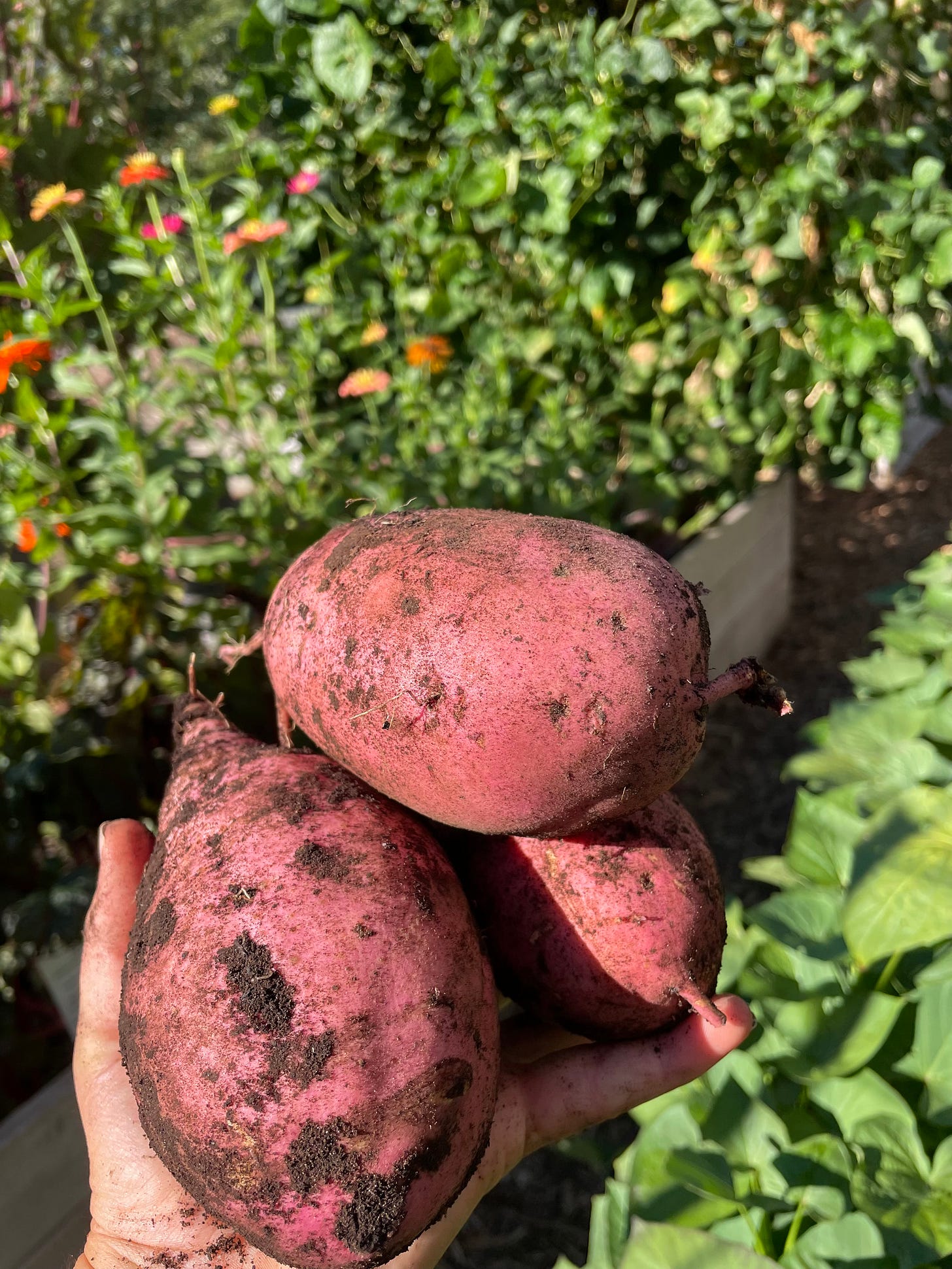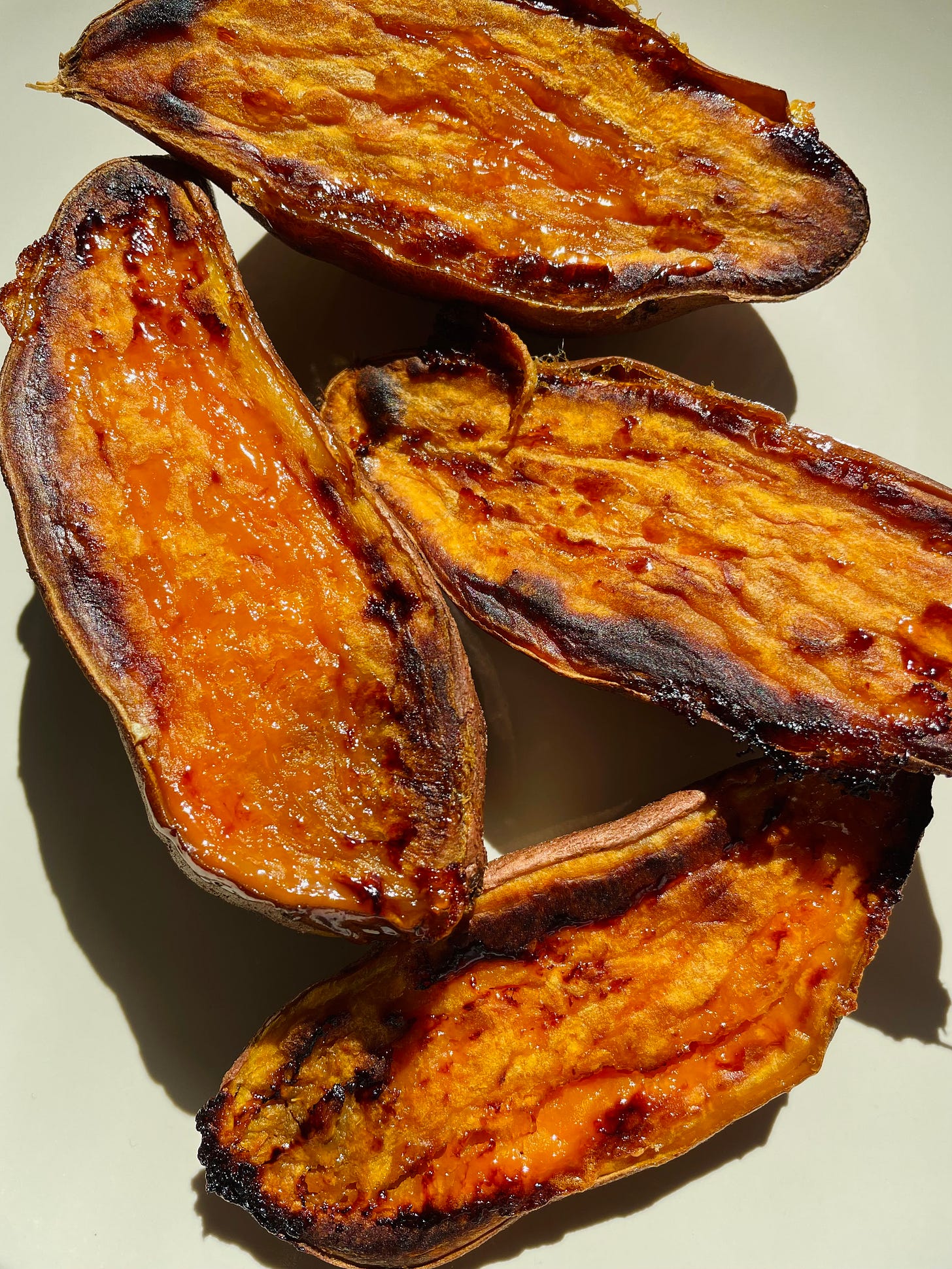Sweet potatoes are a winter treasure—nutrient-packed, incredibly tasty, and they add a nice pop of color to an otherwise beige food season!
When I lived in Arkansas (more on that another time), I had a little community garden at my apartment and would harvest these massive sweet potatoes. I ended up with more sweet potatoes than I knew what to do with, so I started experimenting with different ways to prepare them and used science to perfect my method. I love a good roasted sweet potato, and there’s actual science behind why roasting enhances both the flavor and sensory experience (thank you to whoever decided to use their research budget on studying potatoes).
Roasting sweet potatoes activates two key reactions that have a big impact on flavor: the Maillard Browning Reaction and Caramelization.
The Maillard reaction is a process where amino acids (from proteins) react with reducing sugars (like glucose) when heated. This creates new compounds that give food its golden brown color and complex flavor. TLDR: it makes food taste (and look) better. The Maillard reaction is often associated with meat or bread, but it works on veggies too! Proper preparation brings out their best flavors, and I personally think more people would enjoy veggies if they knew how to maximize their flavor!
Caramelization is like the Maillard reaction’s cousin—it occurs when heat causes sugars to break down, creating a rich caramel flavor and that gorgeous, glossy finish. How you cut the potatoes impacts this process as well. Exposing more surface area to heat helps develop even more natural sugars and deepen those caramelized flavors. The longer you roast, the more sugar breaks down, bringing out even more sweetness and depth of flavor.
All of this to say: sweet potatoes are an elite food, and you can make them taste even better by following this slow roasting method for maximum flavor. Just sweet potatoes, oil, and salt—simple ingredients to make the perfect base for any meal!
Keep reading with a 7-day free trial
Subscribe to What's Cooking to keep reading this post and get 7 days of free access to the full post archives.





